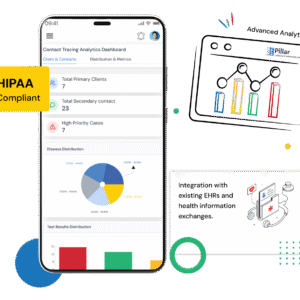In India’s rapidly expanding automotive and electronics market, regulatory compliance is essential to ensure safety, quality, and environmental sustainability. One of the most important certifications for automotive and related electronic components is the ICAT Certificate, issued by the International Centre for Automotive Technology (ICAT). This certification ensures that vehicles, automotive parts, and electronic devices meet the required standards set by the Indian government. For businesses seeking streamlined ICAT approval, Indiaxis stands out as a trusted consultancy partner offering expert guidance and end-to-end support.
What is ICAT Certification?
The ICAT Certificate is a type approval or homologation certificate issued for automotive products and their components in accordance with Indian regulatory standards. ICAT functions under the National Automotive Testing and R&D Infrastructure Project (NATRiP), operating under the Ministry of Heavy Industries, Government of India. Located in Manesar, Haryana, ICAT is accredited by national and international bodies to conduct testing, validation, and certification for vehicles and their components.
Key Categories of Products Requiring ICAT Approval:
- Automobiles: Two-wheelers, three-wheelers, four-wheelers, and commercial vehicles.
- Automotive Components: Headlamps, mirrors, brakes, horns, tires, and more.
- Electronic Sub-assemblies: Microcontrollers, sensors, vehicle tracking systems (VTS), and other connected vehicle technologies.
- Electric Vehicles (EVs): Batteries, charging stations, motor controllers, etc.
Why is ICAT Certification Important?
Getting ICAT approval is not just a regulatory requirement—it is also essential for maintaining product credibility and market competitiveness. Key benefits include:
- Regulatory Compliance: Ensures adherence to Central Motor Vehicle Rules (CMVR).
- Market Access: ICAT certification is mandatory for launching automotive products in India.
- Consumer Trust: Enhances brand reliability by assuring safety and performance standards.
- Export Opportunities: International recognition of ICAT testing enhances export potential.
ICAT Certificate Approvals: The Process
The process of obtaining an ICAT Certificate can be technical and time-consuming. It involves detailed product testing, documentation, and adherence to various safety and performance standards.
Step-by-Step ICAT Approval Process:
- Product Evaluation: Identification of applicable Indian standards (AIS, BIS, CMVR, etc.).
- Application Submission: Filing application with technical documents like product drawings, specifications, and conformity details.
- Prototype Submission: Sending product samples to ICAT for laboratory testing and validation.
- Testing & Inspection: ICAT conducts a series of tests based on the product category—mechanical, electrical, thermal, or environmental.
- Compliance Report: A test report is generated if the product passes all criteria.
- Certificate Issuance: ICAT issues the type approval certificate after successful evaluation.
Role of Indiaxis in ICAT Certificate Approvals
Navigating the complexities of ICAT certification can be overwhelming, especially for new manufacturers and importers. This is where Indiaxis plays a vital role. With a team of industry experts and regulatory professionals, Indiaxis provides complete consultancy services for ICAT approvals.
How Indiaxis Helps:
- Initial Consultation: Assessing product category and determining applicable ICAT requirements.
- Documentation Support: Assistance in preparing all technical files and regulatory documents.
- Testing Coordination: Liaising with ICAT labs for sample testing and tracking progress.
- End-to-End Guidance: From application submission to certificate issuance, Indiaxis ensures smooth and hassle-free certification.
- Post-Certification Support: Indiaxis also provides help with renewals, modifications, and compliance audits.
✅ Contact Indiaxis:
Phone: +91-9899803600
Email: info@indiaxis.in
Common Challenges in ICAT Approvals
While the ICAT certification process is well-structured, businesses often face hurdles due to documentation gaps, technical errors, or lack of regulatory understanding. Some common challenges include:
- Incomplete technical documentation
- Incompatibility with Indian safety standards
- Delays in prototype testing
- Lack of awareness about required conformity assessments
With Indiaxis by your side, these challenges can be effectively mitigated through expert intervention and personalized service.
Who Needs ICAT Certification?
ICAT certification is mandatory for any company—Indian or foreign—that wants to manufacture, import, or sell automotive products in the Indian market. This includes:
- OEMs (Original Equipment Manufacturers)
- Component Manufacturers
- Importers and Distributors
- Electric Vehicle Startups
- R&D Labs and Prototype Developers
ICAT vs. Other Certifications
While certifications like BIS, WPC, and TEC focus on electronics and communication, ICAT is specific to the automotive domain. However, many modern components may need multiple certifications. For instance, a GPS-enabled electric scooter may require ICAT, BIS (for battery), and WPC (for wireless modules). Indiaxis can help coordinate all necessary approvals under one roof.
ICAT in the EV Ecosystem
With India’s aggressive shift towards electric mobility, ICAT has become a key player in certifying electric vehicles (EVs) and related components. From lithium-ion batteries and battery management systems (BMS) to electric motors and controllers, ICAT ensures every EV product complies with safety, performance, and efficiency standards. The certification is essential not just for roadworthiness, but also for availing government incentives under schemes like FAME II. Indiaxis stays up to date with the latest regulatory changes in the EV sector and offers specialized consultancy for startups and manufacturers working on green mobility solutions, making the ICAT approval process smoother and faster.
Final Thoughts
ICAT Certificate Approvals are crucial for any automotive product or component to be legally sold or used in India. With evolving standards and a strong push toward electric mobility and connected vehicles, regulatory compliance is more important than ever. Companies that overlook ICAT certification not only risk penalties but also lose credibility and market access.
That’s why partnering with a knowledgeable consultancy like Indiaxis can make all the difference. From documentation to testing coordination, Indiaxis ensures a smooth and successful certification journey—helping you focus on innovation while they handle the compliance.



